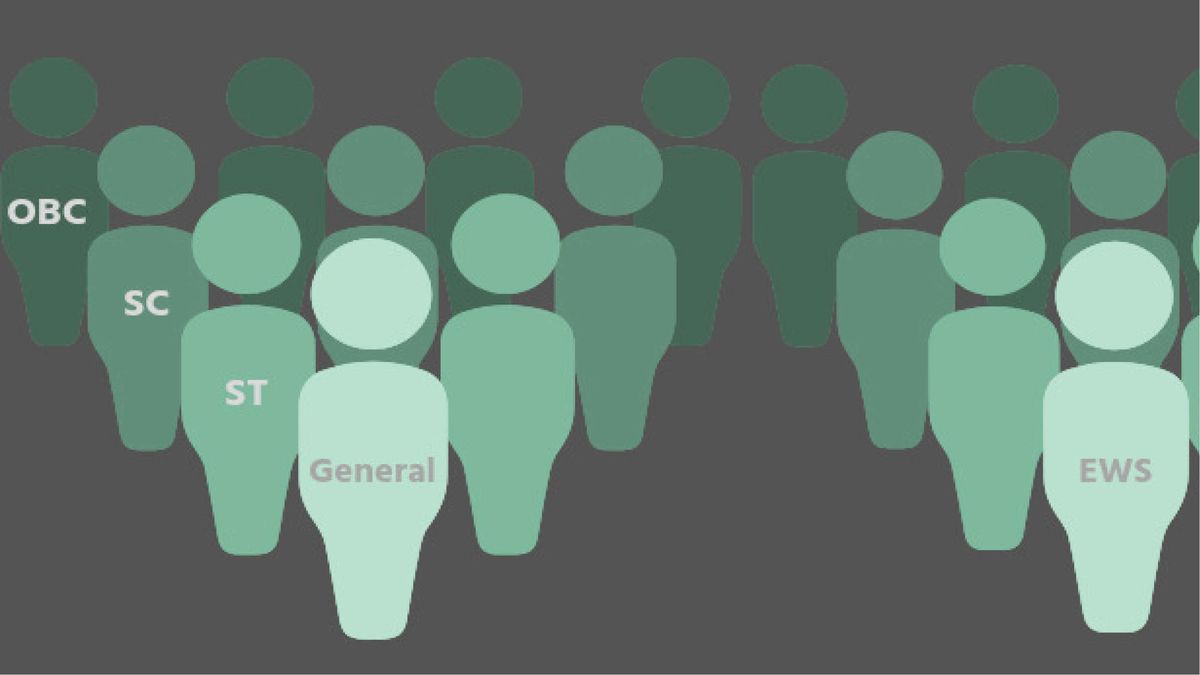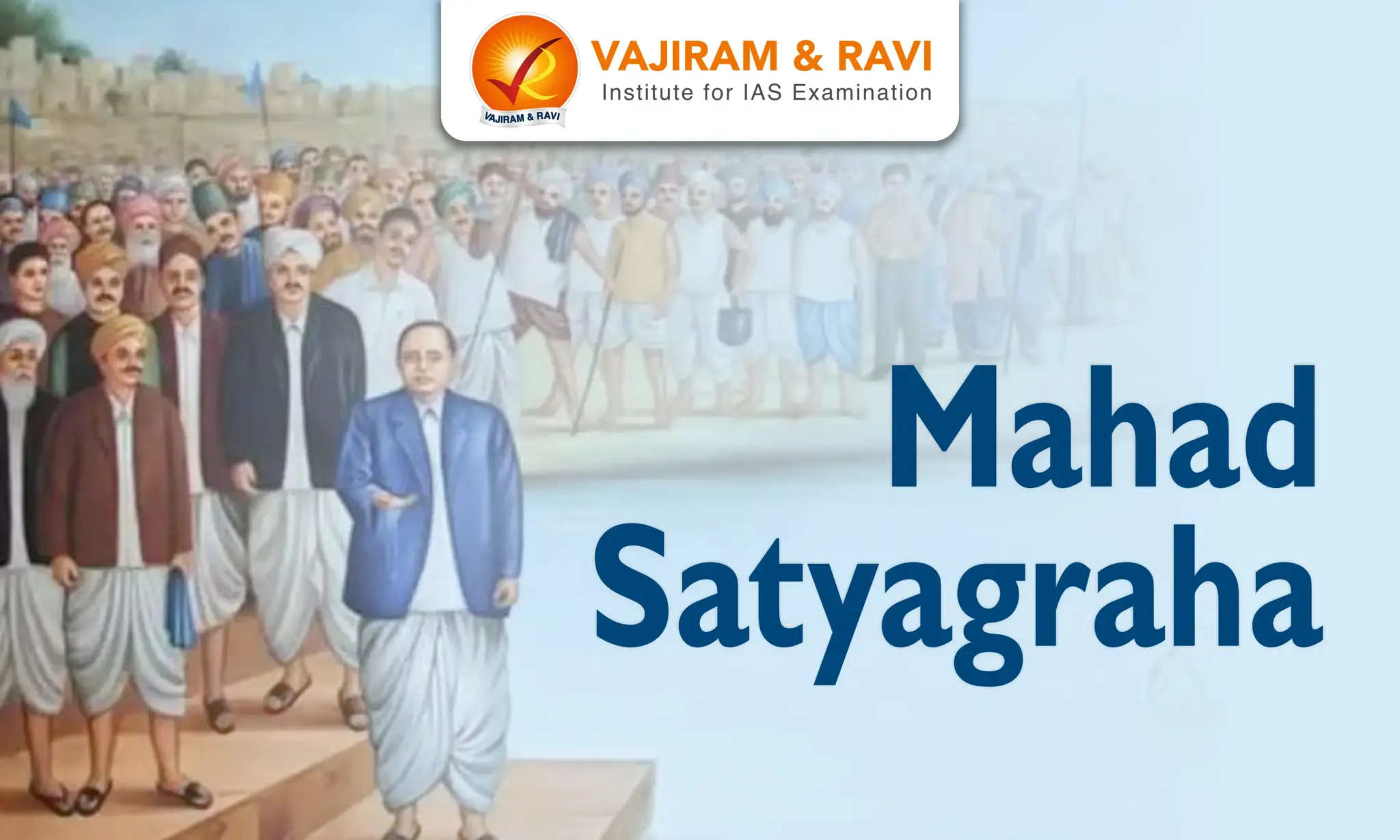Why is there a rise in demand for reservations in India?
The demand for reservation by dominant castes, such as Jats in Haryana, Patidars in Gujarat, Kapus in Andhra Pradesh, and Marathas in Maharashtra, has been increasing in recent years. This is due to a number of factors, including- Lack of employment opportunities in the private sector: The private sector is not able to provide enough jobs for the increasing population, and as a result, many people are turning to government jobs as a means of livelihood.
- Slow growth of agriculture and rural economy: Agriculture and rural economy have not been growing at a fast pace in recent years, and this has led to a lack of opportunities for people living in these areas.
- Droughts: Droughts have also had a negative impact on agriculture and the rural economy, leading to a lack of opportunities for people in these areas.
- Increasing pressure on educational institutions: With the increasing population and limited seats in educational institutions, it has become increasingly difficult for people to access quality education.
- Limited seat expansion: The government has been unable to increase the number of seats in educational institutions and government jobs to accommodate the increasing population, leading to increased competition for limited resources.
What are the recent debates around reservations in India?
Domicile-based reservation- The Haryana State Employment of Local Candidates Act 2020 mandated 75 percent reservation in the private sector for people domiciled in the state of Haryana. However, this is not the first time a state has provided domicile-based reservations to its residents.
- Some other states have also enacted such laws to provide reservations for their local citizens in the private sector. These include Maharashtra (up to 80 percent), Karnataka (75 percent), Andhra Pradesh (75 percent), and Madhya Pradesh (70 percent).
- Telangana had also allowed tax concessions to industries that reserved jobs for locals in the state.
- Similarly, in Madhya Pradesh, the government declared that it would reserve all government jobs in the state for students of the state who have cleared Class 10 and 12 examinations from a school in the state.
- The commission was set up under Article 340 of the Constitution. It was tasked with sub-categorizing the Other Backward Classes (OBCs) and equitable distribution of benefits reserved for them.
- In 2015, the National Commission for Backward Classes (NCBC) also recommended that OBCs should be categorized into extremely backward classes, more backward classes, and backward classes.
- Terms of reference of the Rohini commission are:
- To examine the uneven distribution of reservation benefits among different castes in the central OBC list.
- To work out the mechanism, criteria, norms, and parameters in a scientific approach for sub-categorization within OBCs.
- To take up the exercise of identifying the respective castes/communities/sub-castes for comprehensive data coverage.
- To study and recommend correction of any repetitions, ambiguities, inconsistencies, and errors of spelling or transcription.
- The bench noted that adhering to the letter and spirit of principles of equality and social justice, it is crucial to exclude the "advanced" sections of the community from the benefits of reservations.
- The demand for applying the creamy layer principle to SC and ST reservations rests seemingly on two pillars.
- The first approach is led by the social justice theory, wherein it is believed that the "poorest of the poor" have been denied the said benefits, and the more affluent sections have successfully cornered them in a somewhat zero-sum game.
- The second approach argues that those SCs and STs who have gained sufficient money and power should instead be treated at par with the general "forward" sections of society.
- Setting up a dedicated commission to conduct an empirical inquiry into the nature and implications of backwardness in local bodies of the state.
- Specifying the proportion of reservation required to be provisioned local body-wise in the light of recommendations of the Commission.
- Total reservation for SCs/STs/OBCs shall not exceed 50 percent.
- In the present system of appointment of Judges to the constitutional courts through the Collegium system, the onus to provide social diversity and representation to all sections of the society, including SC/ST/OBC/Women/Minorities, primarily falls on the Judiciary.
- Government cannot appoint any person as a Supreme Court or High Court Judge not recommended by the Collegium.
- However, the Government asks chief justices of Supreme Court and High Courts for due consideration to be given to suitable candidates belonging to Scheduled Castes, Scheduled Tribes, Other Backward Classes, Minorities, and Women.
What are some of the arguments against reservation policy in India?
Reservation is similar to internal partition because it creates barriers to inter-caste and inter-faith marriages, in addition to being a form of ethnic discrimination.- Against merit system: Reservations are viewed as detrimental to a merit-based education system, as they allow for relaxed entry criteria that inflate moderate credentials instead of promoting merit-based opportunities.
- Caste consciousness: Caste-based reservation perpetuates the notion of caste in society rather than weakening it as intended by the constitution. It is also seen as a tool for political gain by invoking class loyalties and primordial identities.
- Reservation as an improper yardstick for affirmative action: A comprehensive scheme of affirmative action, taking into account factors such as economic conditions, gender, and schooling, would be more effective in addressing social justice concerns than reservations.
- Elite culture within caste: The benefits of reservation policies are often disproportionately allocated to the dominant class within backward castes, leaving the most marginalized members of those castes still marginalized.
- Divisions among employees: Reserving seats in government jobs resulted in division and animosity among government employees, causing a toxic work environment.
What is the future of reservation policies in India?
- De-reservation: The reservation policy should benefit the majority of underprivileged children from deprived castes rather than a few privileged children with a caste tag. Families of public officials, high-income professionals, and others above a certain income should be removed from the reservation system.
- Focus on education: Rather than expanding reservations, there should be revolutionary changes in the education system at the grassroots level. If proper education is not provided to children in these categories during the primary stage, then reservations at a later stage serve no purpose.
- Change of yardsticks: Reservations should be based on conditions other than caste, such as poverty and lack of basic necessities.
- Preventing discrimination: Reservation is fair when it provides positive discrimination for the benefit of the downtrodden and economically backward sections of society, but when it harms society and ensures privileges for some at the cost of others for political gain, it loses its purpose.
- Political will: A strong political will is necessary to find a balance between justice for the backward, equity for the forward, and efficiency for the entire system.
- Caste-based census: A socio-economic caste-based census becomes a necessary precondition to initiate any policy reforms in the reservation in India.
Last updated on November, 2025
→ Check out the latest UPSC Syllabus 2026 here.
→ Join Vajiram & Ravi’s Interview Guidance Programme for expert help to crack your final UPSC stage.
→ UPSC Mains Result 2025 is now out.
→ UPSC Notification 2026 is scheduled to be released on January 14, 2026.
→ UPSC Calendar 2026 is released on 15th May, 2025.
→ The UPSC Vacancy 2025 were released 1129, out of which 979 were for UPSC CSE and remaining 150 are for UPSC IFoS.
→ UPSC Prelims 2026 will be conducted on 24th May, 2026 & UPSC Mains 2026 will be conducted on 21st August 2026.
→ The UPSC Selection Process is of 3 stages-Prelims, Mains and Interview.
→ UPSC Result 2024 is released with latest UPSC Marksheet 2024. Check Now!
→ UPSC Prelims Result 2025 is out now for the CSE held on 25 May 2025.
→ UPSC Toppers List 2024 is released now. Shakti Dubey is UPSC AIR 1 2024 Topper.
→ UPSC Prelims Question Paper 2025 and Unofficial Prelims Answer Key 2025 are available now.
→ UPSC Mains Question Paper 2025 is out for Essay, GS 1, 2, 3 & GS 4.
→ UPSC Mains Indian Language Question Paper 2025 is now out.
→ UPSC Mains Optional Question Paper 2025 is now out.
→ Also check Best IAS Coaching in Delhi
Reservation FAQs
Q1. Does the Indian Constitution provide for reservations in promotion with respect to public employment?+
Q2. What is a creamy layer?+
Tags: quest reservation

















